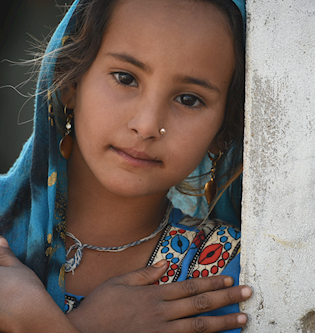The Battle of Karbala
What is the Battle of Karbala?
The Battle of Karbala took place on the 10th of Muharram, 61 AH. It has deep historical significance, as it has shaped the religious and cultural development of Islam.
After Prophet Muhammad (saw) passed away, disagreements over his succession caused a split between Sunni and Shia Muslims, based on differing views of the early caliphs. A caliph is a religious and political leader in Islam, considered the successor to Prophet Muhammad (saw). Following the assassination of Imam Ali (as) and after Imam Hassan’s (as) leadership, Mu'awiya ibn Abi Sufyan established the Umayyad dynasty. His son Yazid’s rule was widely disputed. Imam Hussain (as), the Prophet’s (saw) grandson, rejected Yazid’s authority and aimed to preserve the true teachings of Islam. While traveling to seek justice, Imam Hussain (as) and his small group were stopped by Yazid’s army near Karbala, Iraq. Despite being heavily outnumbered, Imam Hussain (as) stood firm and refused to surrender.
We commemorate the Day of Ashura, as this is the day when the battle commenced in Karbala. Imam Hussain (as), along with his family and companions were denied access to water and tortured for days. They fought bravely, but as they were outnumbered, most were killed. Once Imam Hussain (as) was martyred, the women and children that were among his camp were taken captive.
What is the aftermath of the Battle of Karbala?
While the result of the battle was a loss, its moral and symbolic significance is powerful. The martyrdom of Imam Hussain (as), along with his family and companions came to represent the fight against oppression and injustice.
Every year, millions of Muslims observe the Day of Ashura with prayers and public processions to collectively mourn. Many visit shrines in Iraq, as this has become a central pilgrimage destination, especially during Arbaeen, which commemorates the 40th day after the Battle of Karbala.
Imam Sadiq (as) said: "Whoever wants to sit on the tables of light on the Day of Judgment should be one of the pilgrims of Imam Hussain (as)."
(Wasa'il al-Shi'ah)
What is the significance of the Battle of Karbala?
The Battle of Karbala was not just a battle, it shaped the future of Islam, specifically for Shia Muslims. Imam Hussain (as) alongside his family and companions inspired movements for justice worldwide.
What is the Day of Ashura?
Ashura, which means ‘tenth’ in Arabic, refers to the tenth day of the Islamic month of Muharram. The Day of Ashura holds great importance for both Shia and Sunni Muslims, though it tends to be observed differently by each sect.
For Shia Muslims, The Day of Ashura is a day that is dedicated to mourning the martyrdom of Imam Hussain (as), the grandson of Prophet Muhammad (saw), along with his family and loyal companions during the tragic Battle of Karbala. It is a time of reflection, remembrance, and honoring the sacrifice of the Prophet’s (saw) family for justice and faith.
While Sunni Muslims acknowledge the Battle of Karbala and the martyrdom of Imam Hussain (as), they observe it differently than Shia Muslims. Many fast on the 10th day of Muharram, following the tradition of Prophet Muhammad (saw), who fasted on this day to express gratitude for the event where Prophet Musa (as) and the Israelites were saved from the Pharaoh.
When is the Day of Ashura?
The Day of Ashura is anticipated to fall on July 5, 2025, depending on the moon sighting and may be subject to change.
Charitable Giving during Muharram
All types of charity during this sacred month are highly encouraged, as Muharram is rooted in values of compassion and unity
During the Battle of Karbala, children from the Prophet’s (saw) family were orphaned, making it a great month to sponsor orphans. You can also help vulnerable communities by providing essentials such as food and water.
Your contributions transform the lives of some of the most vulnerable communities across the globe.
Learn more about the month of Muharram, the 1st of Muharram, and the Day of Ashura.


















